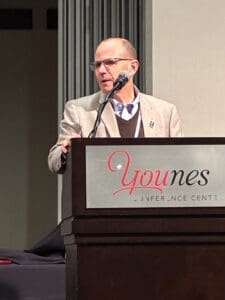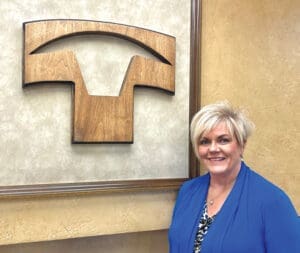By Jim Whitt, Contributing Editor
I was channel surfing one evening and came across a documentary about Fred Rogers, the creator and host of Mister Rogers’ Neighborhood, which ran on PBS from 1968 to 2001. Since I was born in 1952 and the program was aimed at a preschool audience, I never watched the show. But it was fascinating learning more about a man who succeeded at holding the attention of children — who, as we know, have short attention spans — for more than three decades.
Fred Rogers was born in 1928, grew up in the Great Depression and came of age during World War II. It had to be frightening growing up in a world with 25 percent unemployment and watching people standing in soup lines to avoid starving. When they’d go to the movies during the war, they saw newsreels showing the Axis powers unleashing hell on earth. Frankenstein, Dracula and the Wolfman were nothing compared to real-life monsters named Hitler, Mussolini and Hirohito. Radio broadcasts from London were filled with the sounds of bombs bursting and sirens wailing in the background.
Children in America grew up with blackouts and air-raid wardens who searched the skies for enemy bombers. It was a scary world where children had to wonder if the monsters would reach our shores. It was that world that prepared young Fred Rogers for what he would do the rest of his life.
“When I was a boy and I would see scary things in the news, my mother would say to me, ‘Always look for the helpers. You will always find people who are helping.’” Young Mr. Rogers became the person Mrs. Rogers told him to look for. He spent his life helping others.
It was a scary world when Mister Rogers’ Neighborhood premiered in 1968. Martin Luther King, Jr., and Robert Kennedy were assassinated, the U.S. was embroiled in the Vietnam War, and there were student protests on college campuses, and violent clashes between police and protesters at the Democratic National Convention in Chicago. Mister Rogers helped his young viewers cope with those difficult events and many more throughout the years his program was on television.
In 2020, everything we see in the news is scary. It’s like a never-ending horror movie where a two-headed monster — pandemic and pandemonium — roams the earth seeking whom it may devour. One head spews a poisonous virus like a Biblical plague. The other morphs into a legion of masked demons that run rampant in the streets, rioting, looting and burning. It is not a beautiful day in the neighborhood. The monster attacks its victims physically but exacts an even greater toll psychologically. The result is anxiety, fear, anger and frustration.
I think I found a cure for our collective anxiety. It’s something Fred Rogers shared while speaking at a commencement ceremony. He must have been thinking about his mother’s advice as he instructed the audience, “Now, think about who has helped you along the way – for one minute, I’m going to time you. Let’s just take some time to think of those extra-special people.”
This simple request is a powerful exercise. I did it and I’m going to ask you to do the same — take a minute to think about the people who have helped you along your way. The very act of thinking about the people who have helped you has a therapeutic effect. You smile and relax. Your anxiety diminishes. When you think about those people, you stop thinking about the monster. It’s still there but it doesn’t seem nearly as scary.
I’d like to add one more thing to Fred Rogers’ advice. We need to do more than just think about the people who have helped us along the way. We need to be those people. The world will always be scary. There will always be monsters. And people will always be looking for help. We may not be able to repay the people who have helped us on our journey through life, but we can pass along the payment.
Maybe that’s what Mister Rogers’ Neighborhood was all about.





